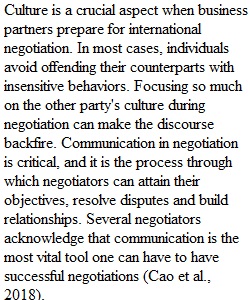


Q Requires Lopeswrite Assessment Description Read the attached case study, "From Regional Star to Global Leader," by Nohria (reprinted from Harvard Business Review with permission of Harvard Business Publishing, Copyright 2009), to complete this assignment. Write a paper (1,500-1,750 words) that discusses the following questions through your research and analysis of the case study: 1. Discuss the company objective. Describe the objectives of Yang Jianguo, Alain Deronde, Yves Saurac, Antoine Lambert, and Elise Bernier. 2. Using a specific cultural framework (Hofstede, Hall, Trompenaars, Kluckhohn, and Strodtbeck) explain two major cultural values and two major societal values that influenced the negotiations between the French and Chinese representatives demonstrated within the case study. Select one of the three countries identified in the Topic 2 The Origin of Impact of Globalization Presentation assignment and provide a comparison of how the values are similar or dissimilar between the French and Chinese representatives in the case study with the previously selected country. 3. Provide two examples of verbal communication evident in the case. Explain how verbal communication differs between Jingauo and the French team during the negotiations. Compare the verbal communication styles in the case study with the country you selected in #2 (above). 4. Provide two examples of nonverbal communication evident in the case. Explain how nonverbal communication differs between Jingauo and the French team during the negotiations. Compare the nonverbal communication cues in the case study with the country you selected in #2 (above). 5. During negotiations, what was the predominant cultural tendency of the French and Chinese to utilize a distributive or integrative style? Compare the predominant cultural negotiation styles in the case study with the country you selected in #2 (above). 6. Explain the differences in the negotiation tactics and bargaining behaviors between the French and Chinese. Compare the predominant cultural negotiation tactics and bargaining behaviors in the case study with the country you selected in #2 (above). 7. Explain the leadership competencies and characteristics that Yang Jianguo, Alain Deronde, Yves Saurac, Antoine Lambert, and Elise Bernier would need for a successful negotiation. Prepare this assignment according to the guidelines found in the APA Style Guide, located in the Student Success Center. This assignment uses a rubric. Please review the rubric prior to beginning the assignment to become familiar with the expectations for successful completion. You are required to submit this assignment to LopesWrite. A link to the LopesWrite technical support articles is located in Class Resources if you need assistance. Attachments
View Related Questions